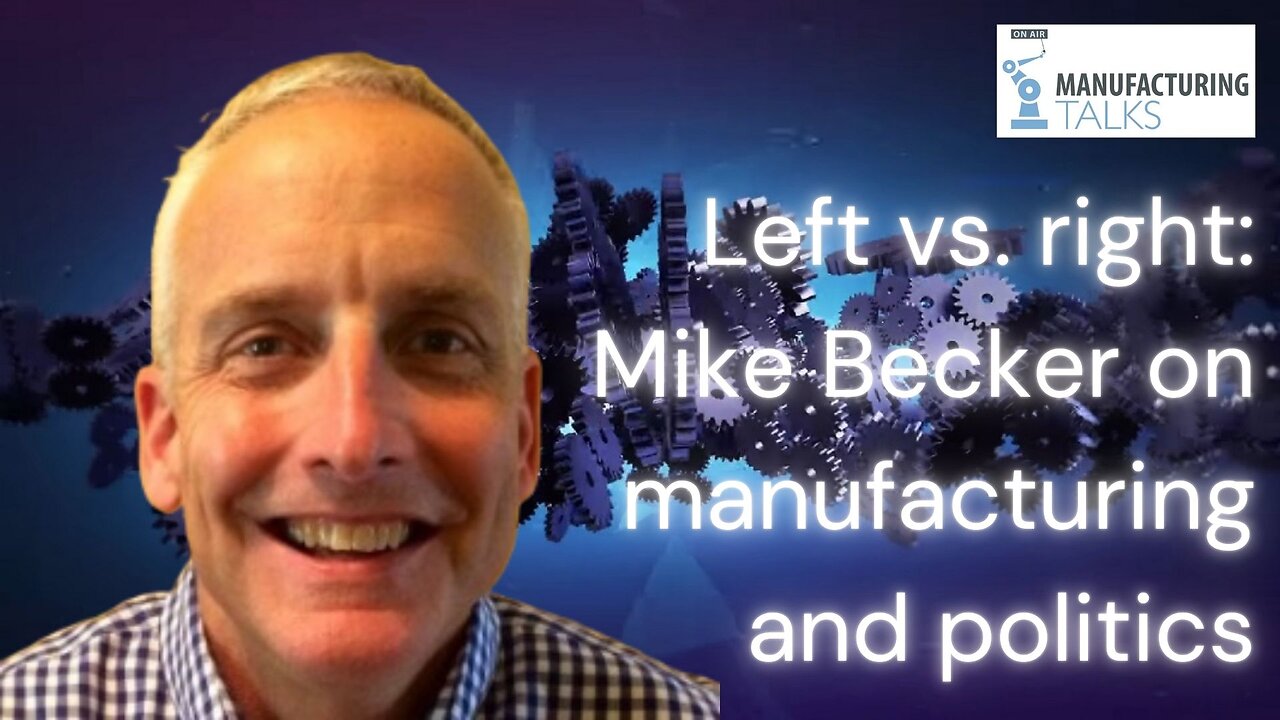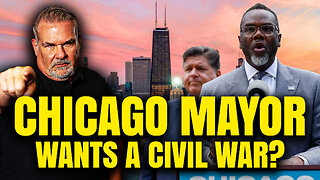Premium Only Content

In the wake of the Charlie Kirk assassination, Mike Becker and Jim Vinoski discuss their differences
Jim Vinoski hosts Mike Becker in the aftermath of the assassination of Charlie Kirk to set the example that people with opposing views can address their differences rationally and respectfully.
Mike, a consultant at Becker Quality Improvements, shares his background in food safety and continuous improvement, highlighting issues like cost pressures and inadequate sanitation practices. They discuss the evolution of food safety standards, the impact of government policies, and the challenges of balancing individual liberty with government intervention.
Highlights:
Introduction and Background of Guests
• Mike shares his background, including his 30-year tenure at General Mills, his interest in continuous improvement, and his current consulting firm, Becker Quality Improvements.
• Mike discusses his consulting work, focusing on food safety, pathogen reduction, and implementing SQF standards.
• He highlights the impact of his consulting on smaller companies, emphasizing the importance of thorough cleaning and sanitation practices.
Food Safety Concerns and Challenges
• Jim asks Mike about the top concerns in the food safety industry.
• Mike identifies cost pressure as a significant issue, particularly in the thorough cleaning required for micro-level contaminants like salmonella and listeria.
• He mentions the Boar's Head incident as an example of poor sanitation practices leading to plant closures.
• Mike discusses the role of the USDA and CDC in food safety and the potential impact of reduced pathogen monitoring.
Progress in Food Safety Over the Years
• Mike shares his observations, noting significant improvements in sanitation and pathogen level cleaning since the early 90s.
• He acknowledges that larger companies have made more progress than smaller ones due to cost pressures.
• Jim shares a personal anecdote about an acquaintance with salmonella, highlighting the prevalence of foodborne illnesses.
Political Philosophies and Personal Backgrounds
• Mike explains his early voting history, influenced by his father's views, and his shift from Republican to Democrat after the 1992 RNC convention.
• Jim shares his own political journey, influenced by his father's NRA membership and his rural upbringing in Michigan.
• Both discuss the polarization of political views over the years and the impact of influential figures like Pat Buchanan and Rush Limbaugh.
Influences and Influences on Political Views
• Mike mentions his early interest in history and his reading of American Revolution figures.
• He also mentions reading Ayn Rand and listening to political commentators like Keith Olbermann.
• Jim shares his interest in Austrian economics and his reading of authors like Ayn Rand and Henry Hazlitt.
• Both discuss the influence of their upbringing and personal experiences on their political views.
Government Intervention vs. Individual Liberty
• Jim and Mike discuss the balance between government intervention and individual liberty.
• Mike emphasizes the importance of government in areas like highways and defense, while acknowledging the need for thoughtful spending.
• Jim expresses skepticism about government's ability to manage effectively, citing examples of mismanagement and the impact of private equity on manufacturing.
• Both agree on the need for measured approaches to government spending and the challenges of addressing the national debt.
Current Political Issues and Concerns
• Mike identifies political violence and radical rhetoric as major concerns, mentioning the recent assassination of Charlie Kirk.
• He discusses the impact of mental health issues on violence and the need for better mental health programs.
• Jim and Mike agree on the importance of toning down rhetoric and promoting respectful conversations.
• They discuss the challenges of addressing issues like Christian nationalism and the impact of non-religious beliefs on political discourse.
Addressing Past Wrongs and Moving Forward
• Mike and Jim discuss the importance of acknowledging past wrongs and learning from history.
• Mike mentions the lack of education on historical events like the Tulsa race massacre and the Wounded Knee Massacre.
• Jim shares his own learning about discrimination during World War II from a British author.
Conclusion and Future Collaboration
• Jim asks Mike for his ideas on how to bring Americans together.
• Mike suggests more one-on-one discussions between presidential candidates, focusing on rational conversations rather than debates.
• Jim shares his own experience with a podcast inspired by Kevin Blue, aimed at bringing together opposing viewpoints.
You'll notice this was not a debate. This was two guys with very different political philosophies demonstrating that you can hear one another's points of view with reason and good humor. Because here's a fact: every one of us is flat-out wrong about something (and usually, a good many somethings) he or she believes.
-
 19:37
19:37
Chris From The 740
11 hours ago $0.14 earnedIs the Aimwin PE320 Red Dot Sight the BEST OPTION for Your Pistol?
3.89K -
 LIVE
LIVE
Game On!
15 hours ago $3.46 earnedThe GREATEST Monday Night Football Game OF ALL TIME!
1,199 watching -
 18:02
18:02
Demons Row
22 hours ago $2.74 earnedI Rode Into the Most Feared Motorcycle Club in America 💀🔥
19.3K4 -
 2:43
2:43
Blackstone Griddles
1 day agoWalking Tacos on the Blackstone Griddle
11.4K2 -
 LIVE
LIVE
BEK TV
23 hours agoTrent Loos in the Morning - 10/07/2025
173 watching -
 LIVE
LIVE
The Bubba Army
22 hours agoChicago Civil WAR? - Bubba the Love Sponge® Show | 10/07/25
1,677 watching -
 4:33
4:33
The Official Steve Harvey
14 hours ago $2.19 earnedEvery time you thought it was over… it wasn’t...
19.4K1 -
 3:07
3:07
NAG Daily
16 hours agoYour Inner Dialogue w/ GreenMan
16.3K1 -
 3:26
3:26
From Zero → Viral with AI
4 days ago $1.48 earnedAI Isn’t the Strategy — It’s the Tool | How AI Can Transform Political Campaigns
13.6K2 -
 8:09
8:09
DropItLikeItsScott
15 hours ago $0.88 earnedHi Point HP-15 AR Pistol / Accuracy Test
14.3K1
